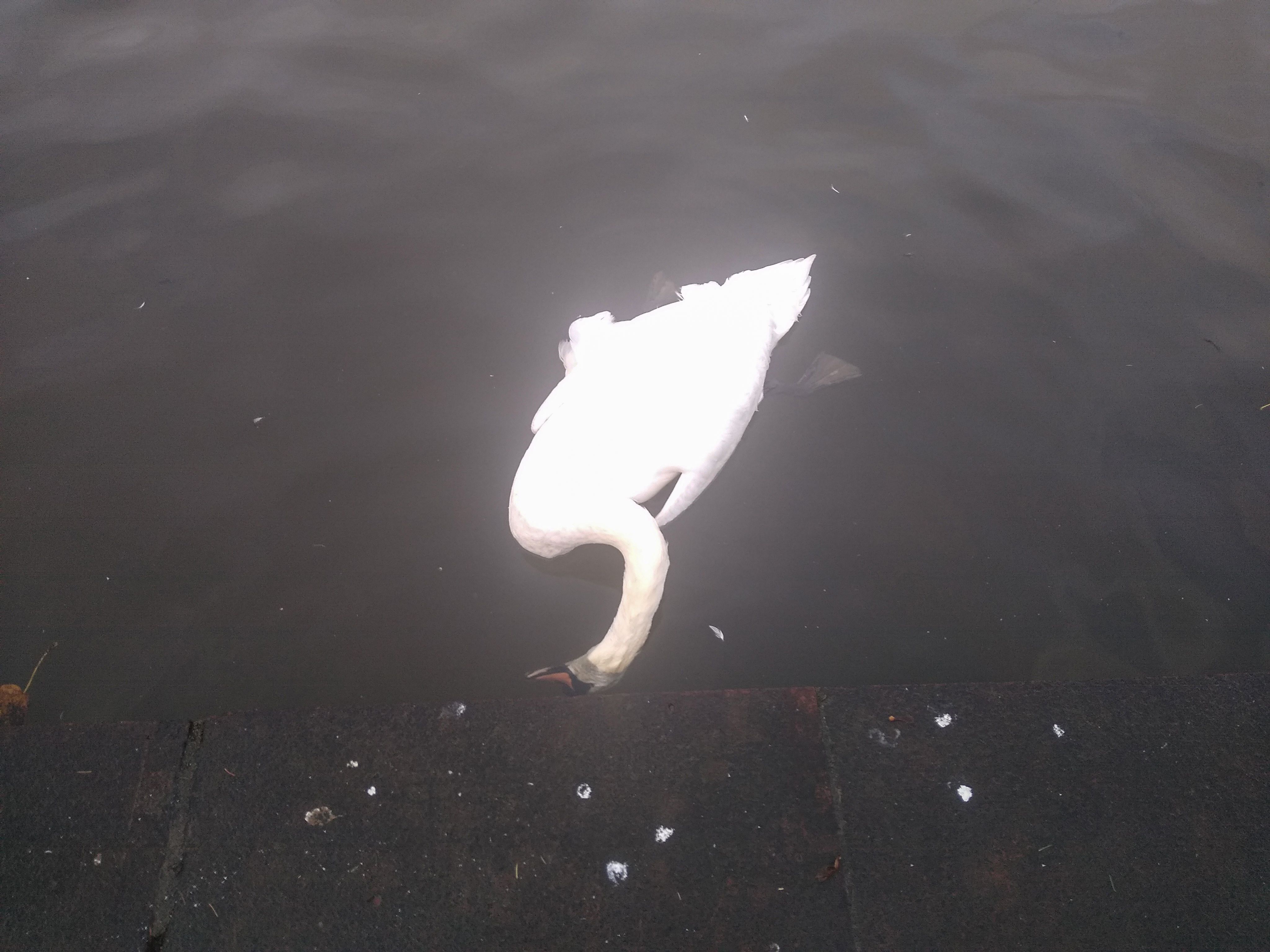NORTH Belfast MP John Fincuane has expressed concern as the Department of Agriculture began in inquiry into possible new cases of bird flu in the Waterworks.
Last week, the disease was confirmed in two wild birds retrieved from the popular North Belfast beauty spot. On Monday, a young swan was found dead in the top pond while park workers received a report of a "very ill" young swan. It's not known if the two cases involve the same bird.
Mr Finucane said: “Of course we are all very concerned at these reports of bird flu in the Waterworks and this morning’s news of a young swan being found dead in the park are distressing.
“Park users reported a very ill cygnet to the park workers yesterday and were told that the Department For Agriculture had been contacted.
“Unfortunately this morning it seems this same young bird appears to be floating dead in the top pond.
“I’ve contacted Belfast City Council and the Department For Agriculture to alert them and to raise my concerns.
The dead swan in the Waterworks
“The Waterworks is one of our most popular parks in Belfast with a large population of wildlife including flocks of swans, geese and ducks and clearly local people in North Belfast are worried that this suspected outbreak of bird flu could have a significant impact.
“I’d urge park users to alert park workers if they see anything concerning and I also appeal to people not to approach birds that seem to be in distress.
“Hopefully the the situation can be dealt with promptly by responsible agencies and the suspected outbreak can be contained.”
A public health warning has been issued by the Public Health Agency.
While human infections of avian influenza viruses are rare, they do occur and can cause a fever, cough, muscle pain, a sore throat, runny nose and conjunctivitis.
As a result, Public Health Agency consultant Dr Philip Veal has urged people not to touch dead birds or their feathers, to avoid waterside faeces and to keep pets away from the birds.
Dr Veal said: “Although human infections with avian influenza are rare, some viruses, such as H5N1 or H7N9, have been associated with human disease.
“The symptoms of avian influenza in humans vary considerably depending on the strain or subtype of the virus involved.
“Most infections take the form of a flu-like illness, such as fever, cough, body or muscle pain, sore throat, runny nose. Other symptoms can include conjunctivitis – red, sore and discharging eyes.”
A PHA spokesperson added: “The vast majority of bird deaths in the UK will not be related to avian influenza, based on information from surveillance activities.
Patrolling the Waterworks
“However if you find dead waterfowl (ducks, geese or swans) or other dead wild birds, such as gulls or birds of prey, you should report them to DAERA Helpline 0300 200 7840 in Northern Ireland.”
New measures were introduced on Monday as part of the Avian Influenza Prevention Zone. Disease control zones have been put in place around all infected premises to mitigate against onward disease spread.
Under the new housing measures all bird keepers in the North will be legally required to keep their birds indoors or otherwise separate from wild birds and follow strict biosecurity measures. This applies to owners of pet birds, commercial flocks, a few birds in a back yard or a hobby flock.
Agriculture Minister Edwin Poots said: “I took the decision to introduce the new housing measures in order to try to prevent an incursion of avian influenza into the poultry flock in Northern Ireland.
"It is now a legal requirement for all poultry and captive bird keepers to keep their birds housed or otherwise separate from wild birds. This decision was based on sound expert advice and in consultation with industry.
“This decision to house is an additional step to the Avian Influenza Prevention Zone (AIPZ) introduced on the November 17 and another necessary precautionary measure requiring all bird keepers to keep their birds housed. These housing measures build on the strengthened biosecurity measures that were brought in as part of the AIPZ.
“Since my decision to introduce the housing order, we have now discovered avian flu in two wild birds in Belfast – that tells us unequivocally that the disease is already here and in our wild bird population. Keeping it out of the commercial flocks is now down to our poultry sector and the measures they take to keep the disease out. Adhering to, and constant review of, all biosecurity measures is the best weapon we have to avoid an incursion.
“My officials will continue to liaise closely with stakeholders and colleagues in GB and the ROI as the situation develops.”







